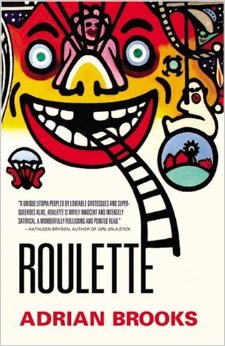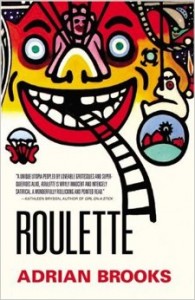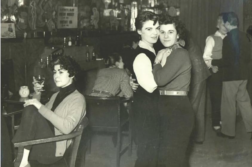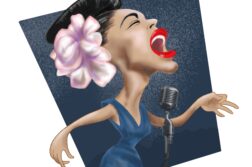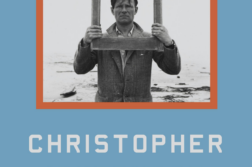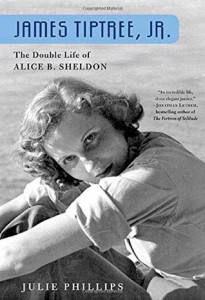 James Tiptree, Jr.: The Double Life of Alice B. Sheldon
James Tiptree, Jr.: The Double Life of Alice B. Sheldon
by Julie Phillips
Picador. 545 pages, $18.
In the late 1960’s, a writer by the name of James Tiptree Jr. began appearing in science fiction magazines. His stories were not only well crafted and tightly paced; they were memorable explorations of identity, gender, and sexuality. The science fiction world soon took notice, and Tiptree began to win Hugo awards, the “Oscar” of science fiction writing, as well as other recognition. But Tiptree proved as mysterious as he was admired. Like Thomas Pynchon, he cultivated a guarded isolation. No one had ever seen or heard Tiptree—his friends and admirers knew him only through the vibrant and engaging correspondence that originated from his Virginia post office box. For years Tiptree dodged award ceremonies, science fiction conventions, and requests for in-person interviews, but the speculation only grew more intense. Eventually, Tiptree’s fans put together enough clues to discover that Tiptree was actually Alice B. Sheldon, a former painter, CIA agent, and psychologist. Julie Phillips’ 2006 biography, now available in paperback, tells this strange story masterfully. With the skill of a novelist, Phillips depicts the life of a fascinating woman whose struggles with her own identity and quest for personal fulfillment will be intriguing even to those uninterested in science fiction. The daughter of wealthy and accomplished parents, Sheldon was blessed with an uncommon childhood. Before she was a teenager she was exploring Africa and other exotic locales with her parents. As a young woman, her pedigree made her one of Chicago’s social elite. She lived a somewhat charmed and certainly a fascinating life, and as a lifelong diarist and an indefatigable correspondent, Tiptree/Sheldon provides her biographer with amazing material. Phillips has clearly used the best of it; her biography is a first-rate chronicle of a unique 20th-century American.
Jim Nawrocki


